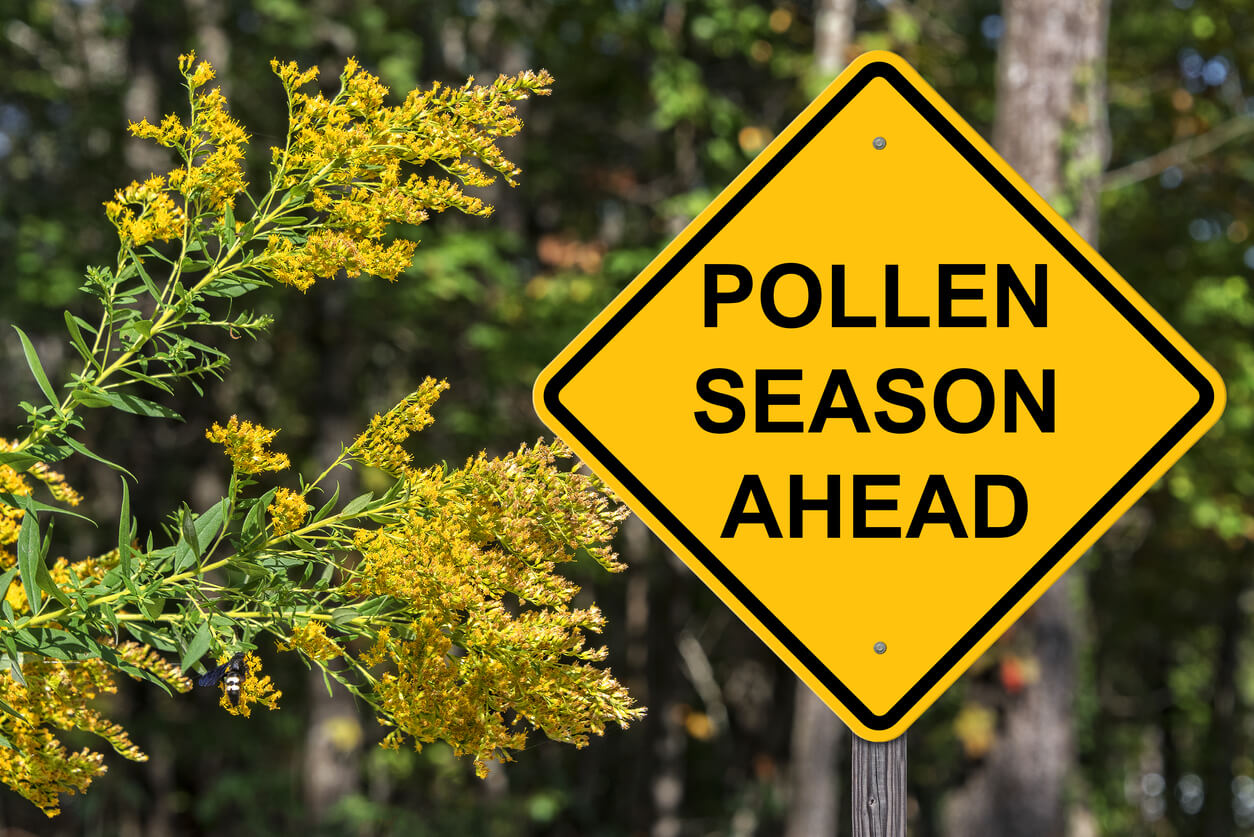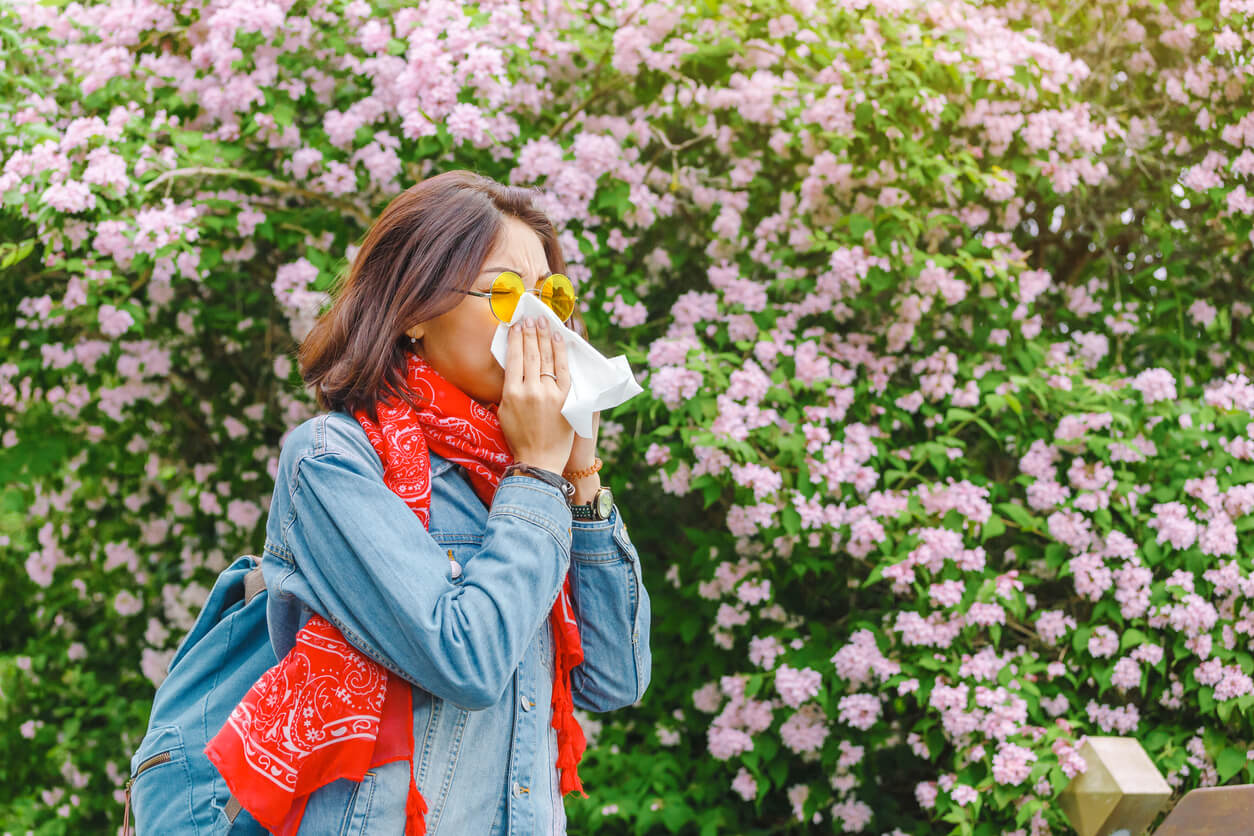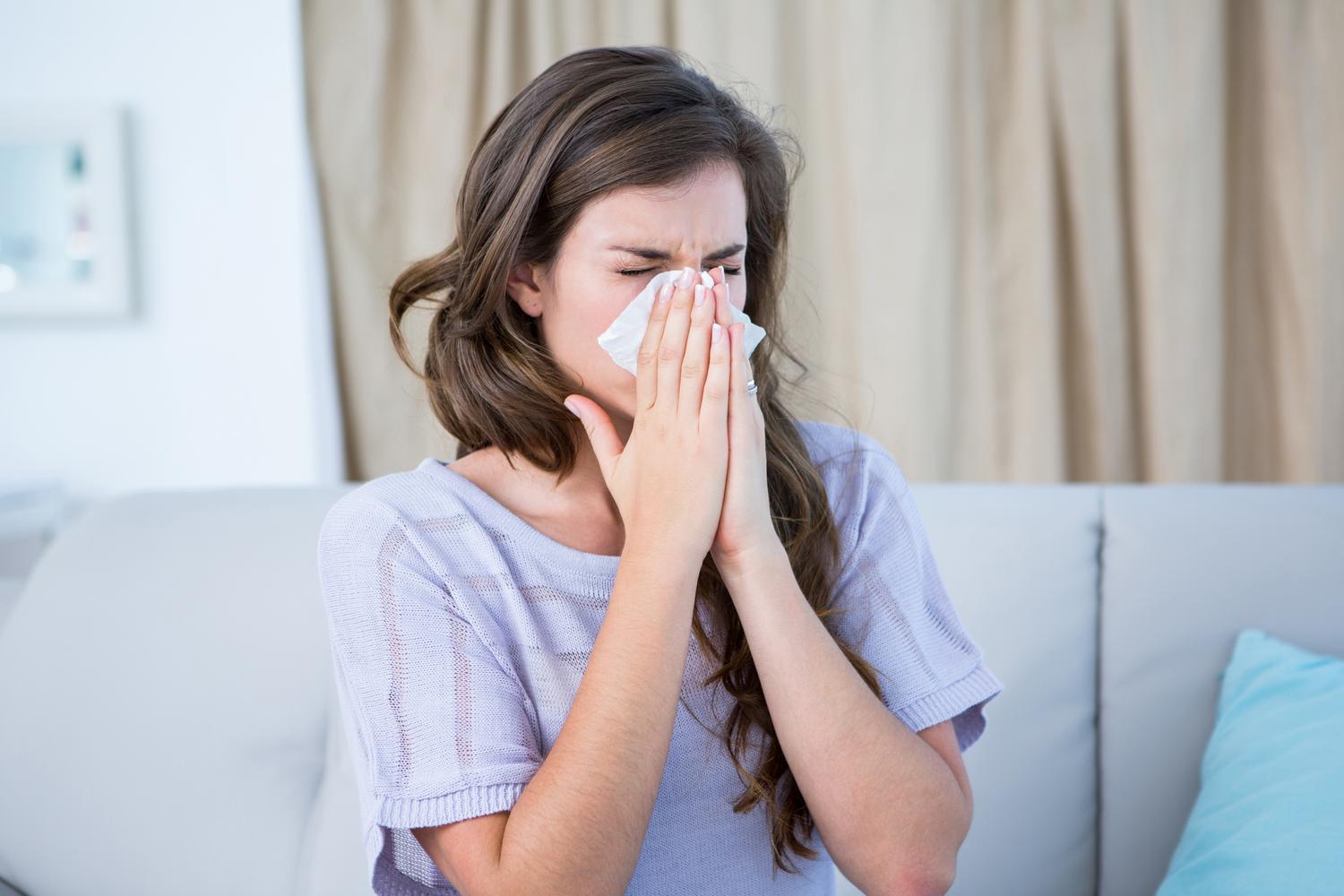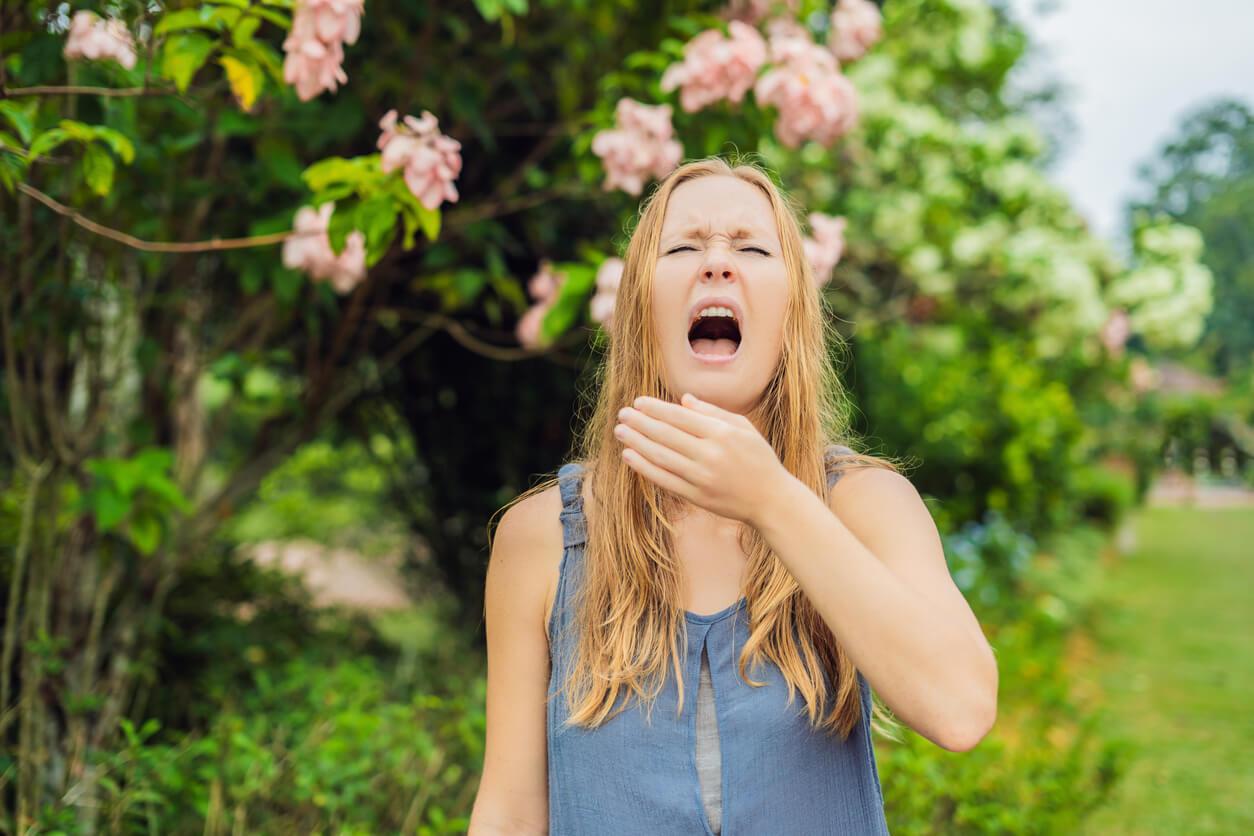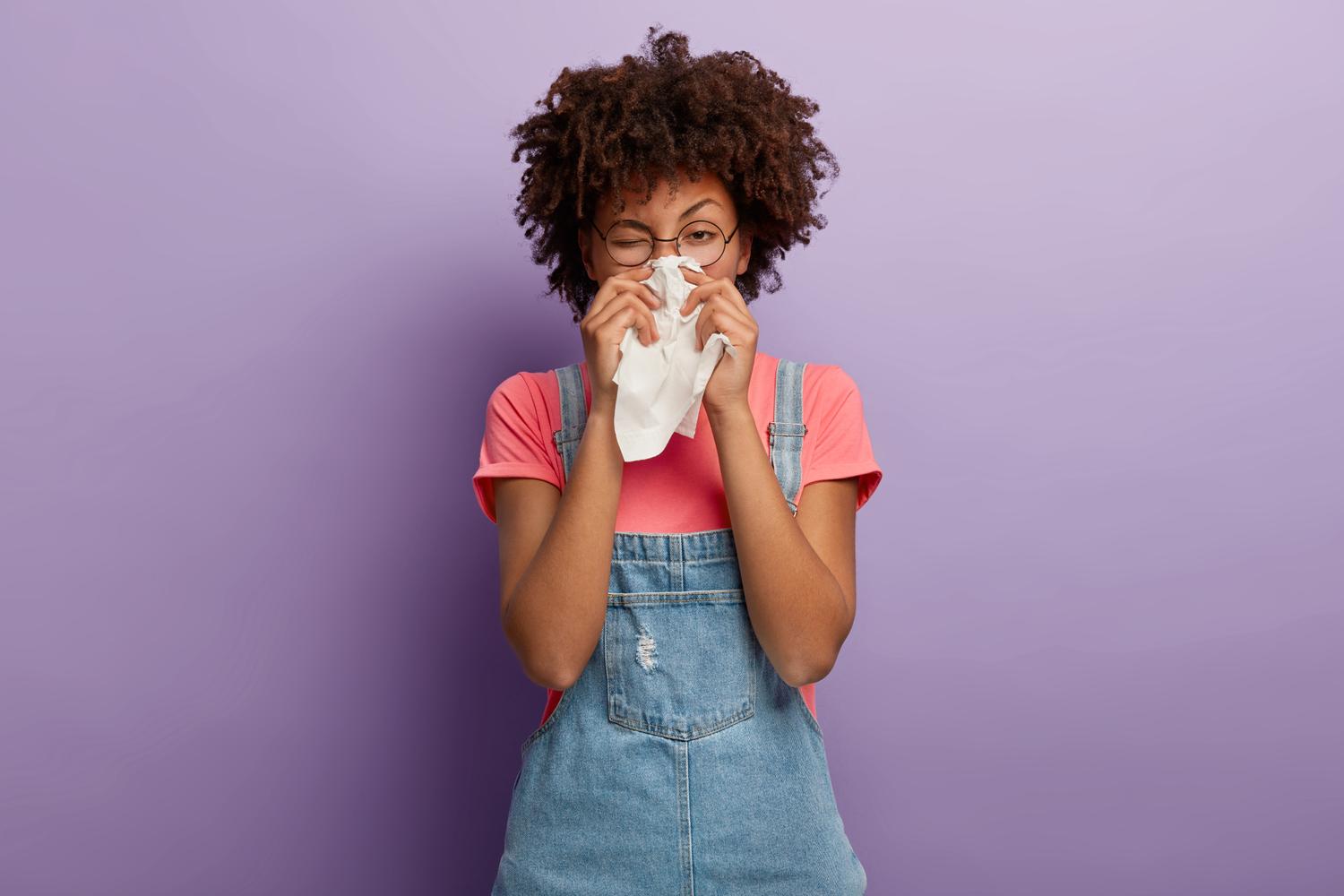Seasonal Allergies: Symptoms and Treatment Options
Learn more about seasonal allergies, including common symptoms, prevention, and treatment options
Budding flowers, trees in bloom, and sneezing. So much sneezing. March marks the beginning of spring and the beginning of springtime allergies. Millions of Americans will spend this time of the year cycling through endless amounts of tissues, eye drops, and nasal sprays while they try to revel in the warmer weather. Some allergies can become so bad that they avoid going outside altogether. Don’t let pollen pressure you into staying indoors. Use the tips below to control your seasonal allergy symptoms and get the most out of the warmer weather.
What are seasonal allergies?
Allergies happen when your body thinks that harmless irritants, like pet dander, are pathogens that could make you sick. When this happens, your immune system prompts a response that attacks these substances. Histamines are the attack-dog chemicals released by your immune system. Unfortunately, this chemical is also what causes symptoms like itchy eyes, a runny nose, and a scratchy throat.
Seasonal allergies–also known as hay fever–occur during the changing seasons as pollen spreads in the air. Pollen is released by plants of all kinds -- like trees, grasses, and flowers -- and carries the genetic material to create the next generation of plants.
When is allergy season?
Spring, summer, and fall are rife with allergy triggers as these are heavy pollen seasons. Tree and grass pollen are most commonly spread in the spring. Trees are often the first plants to pollinate during the new year - making tree pollen the main culprit to blame for spring allergies. In most parts of the U.S., trees tend to pollinate from March to May, although some trees in the South pollinate in late winter or year-round. Grass tends to pollinate later in the spring through the early summer. Only a few types of grass cause allergy symptoms.
Weed pollen is most common in the late summer and early fall. Ragweed pollen causes allergy symptoms in nearly 15% of Americans. The Asthma and Allergy Foundation of America estimates that 75% of people with pollen allergies are allergic to ragweed. Ragweed grows across the United States but is most commonly found in Midwestern and Eastern states. Ragweed produces up to 1 billion pollen grains, which can travel as far as 400 miles through the air.
What are the most common seasonal allergy symptoms?
Allergens, like high levels of pollen in the air, trigger allergic reactions. Symptoms and their severity will vary from person to person.
The most common symptoms caused by exposure to outdoor allergens like pollen are “allergic rhinitis”.
Common symptoms of allergic rhinitis include:
- Runny nose
- Stuffy nose (nasal congestion)
- Itchy nose
- Sneezing
- Itchy or watery eyes
Other symptoms of an allergic reaction include:
- Sinus congestion/ sinus pain
- Postnasal drip (mucus dripping down the nasal passages)
- Hives
- Sore throat
- Changes in sense of smell or taste
- Puffiness under the eyes
- Fatigue
- Headache
Reactions to allergens will vary. No two people have the same immune system or the same histamine response to irritants. The length of allergy season will also depend on where you live. Southern states, for example, may have higher pollen counts for longer than states that have cool spring and fall temperatures.
How do I treat seasonal allergies?
Over-the-counter treatment
Most people can get allergy relief from widely available over-the-counter products. Keep in mind that allergy medication will not cure allergies. Instead, these drugs help your body regulate its immune response–the release of histamines–to reduce symptoms such as sneezing, stuffiness, and eye irritation.
Antihistamines are the most common form of allergy medication. Over-the-counter (OTC) antihistamines are available as oral tablets, eye drops, and nasal sprays. You can also take a decongestant containing pseudoephedrine to help clear mucus out of the nasal passages and sinuses for additional relief.
Common OTC antihistamines include:
- Cetirizine (generic Zyrtec)
- Loratadine (generic Alavert and Claritin)
- Diphenhydramine (generic Benadryl)
- Fexofenadine (generic Allegra)
- Brompheniramine (generic Dimetane)
- Chlorpheniramine (generic Chlor-Trimeton)
- Clemastine (generic Dayhist)
- Doxylamine (generic Vicks NyQuil)
Some of these medications can cause drowsiness as a side effect. Talk to your healthcare provider before taking any OTC antihistamines to ensure that you understand how these drugs work and the possible side effects they may cause.
In addition to antihistamine treatment, you may consider using an OTC corticosteroid nasal spray to reduce inflammation in the nasal passages. These drugs may take several weeks to work but are considered the most effective allergy maintenance therapy.
OTC steroid nasal sprays include:
- Mometasone (generic Nasonex)
- Budesonide (generic Rhinocort)
- Triamcinolone (generic Nasacort)
- Fluticasone (generic Flovent)
Using steroidal nasal sprays could lead to nosebleeds or nasal irritation. Additionally, individuals may notice an unpleasant taste lingering in the throat following spray administration. If you encounter persistent side effects from nasal spray usage, it's advisable to consult your healthcare provider for guidance. Prescription treatment
For some people, OTC allergy medication won’t do the trick. In this case, prescription-strength antihistamines may be needed to provide symptom relief.
Prescription-strength antihistamines include:
- Azelastine (generic Astelin and Optivar)
- Desloratadine(generic Clarinex)
- Cyproheptadine (generic Periactin)
- Hydroxyzine (generic Vistaril)
- Levocetirizine (generic Xyzal)
Are there alternative allergy treatment plans?
If you're struggling with persistent or severe symptoms, talk to a healthcare provider, such as an allergist, for more intensive treatment options. Allergists specialize in allergy treatment. An allergist will perform allergy testing to determine what is causing your symptoms. They will likely use a blood test or a skin prick test to identify your trigger. Once they determine the cause of your allergies, they will work with you to create a treatment plan to reduce your symptoms and improve your quality of life.
For severe allergies, your doctor might suggest allergy immunotherapy (like allergy shots) to desensitize your body to the allergen. They can also offer medical advice as to how to avoid allergy triggers.
How do I prevent seasonal allergies?
Preventing allergic reactions will depend on the allergy. To prevent pollen spores from entering your home, close doors and windows during peak allergy season. You should also take a look at pollen levels. You can usually check pollen levels on your local weather forecast. If you can, avoid outdoor activities on days with high quantities of pollen in the air.
You may also consider installing an air-conditioning system with a HEPA (high-efficiency particulate air) filter. Air conditioners with these filters can trap pollen, dust mites, animal dander, and mold spores from the air. Cleaner air makes you less likely to experience an allergic reaction in your home.
It’s not realistic to stay inside a sealed-shut house for the entirety of spring–we wouldn’t recommend you do that anyway–but these tips can at least help you during those peak times when pollen and allergens are most prevalent in your area.
How can Sesame help with seasonal allergies?
Don’t surrender your spring to allergies. Talk to an allergy expert on Sesame to get help right away with your symptoms. Providers on Sesame can diagnose conditions, offer testing, and provide an allergy treatment plan, if appropriate. Book a visit today to start feeling better right away.


